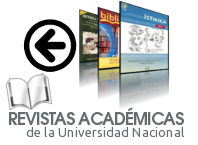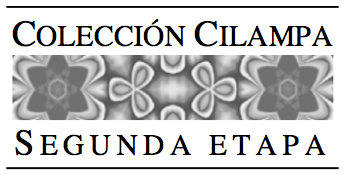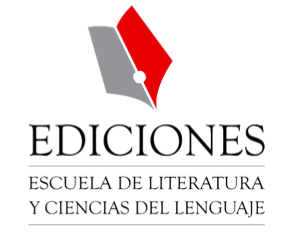Pedagogical Practices in the Production of the Third-Person Singular Morpheme
DOI:
https://doi.org/10.15359/rl.2-75.5Keywords:
acquisition, education, Spaced Learning, instruction, English learningAbstract
Spaced Learning is implemented to prompt oral production of the third-person singular –s by Spanish EFL learners. This quantitative study involved three experimental groups and a control group. The experimental groups received differentiated instruction (form-focused, meaning-focused, and a combination of both) in which the technique is embedded. The data were coded and analyzed with the obligatory occasion analysis method and an ANOVA test. Results show that Spaced Learning combined with form-focused and meaning-focused instruction prompted the oral production of the morpheme. Consequently, it is recommended to use, but not complement, the tenants of each instruction in the EFL classroom.
References
Bird, Steve. “Effects of Distributed Practice on the Acquisition of Second Language English Syntax,” Applied Psycholinguistics 31, 4 (2010): 635-650. DOI: 10.1017/S0142716410000172.
Bloom, Kristine and Thomas J. Shuell. “Effects of Massed and Distributed Practice on the Learning and Retention of Second-Language Vocabulary,” The Journal of Educational Research 74, 4 (1981): 245-248. DOI: https://doi.org/10.1080/00220671.1981.10885317.
Çağrı Tuğrul Mart. “A Comparison of Form-Focused, Content-Based and Mixed Approaches to Literature-Based Instruction to Develop Learners’ Speaking Skills,” Cogent Education 6, 1 (2019): 1-27. DOI: https://doi.org/10.1080/2331186X.2019.1660526.
Castro-García, Damaris. “Spaced Learning: Its Implications in the Language Classroom,” Revista de Lenguas Modernas 20 (2014): 242-257.
Celce-Murcia, Marianne, Dörnyei Zoltán and Sarah Thurrell. “Direct Approaches in L2 Instruction: A Turning Point in Communicative Language Teaching?," TESOL Quarterly 31, 1 (1997): 141-152. DOI: https://doi.org/10.2307/3587979.
Çelik, Bunyamin. “A Comparison of Form-Focused and Meaning-Focused Instruction Types: A Study on Ishik University Students in Erbil, Iraq,” International Journal of English Linguistics 9, 1 (2018): 201-228. DOI: 10.5539/ijel.v9n1p201.
Çelik, Bunyamin. “Comparing the Effectiveness of Form-Focused and Meaning-Focused Instructions in EFL Teaching,” Journal of Education in Black Sea Region 1, 1 (2015): 5-15. DOI: 10.31578/jebs.v1i1.4.
Council of Europe. The CEFR Levels, Common European Framework of Reference for Language (CEFR), 2022, <https://www.coe.int/en/web/common-european-framework-reference-languages/level-descriptions>.
De la Fuente, María José. “Classroom L2 Vocabulary Acquisition: Investigating the Role of Pedagogical Tasks and Form-Focused Instruction,” Language Teaching Research 10, 3 (2006): 263-295. DOI: 10.1191/1362168806lr196oa.
Ebbinghaus, Herman. Memory: A Contribution to Experimental Psychology. New York: Teachers College Columbia University, 1913.
Ebbinghaus, Hermann. “Retention as a Function of Repeated Learning," Memory: A Contribution to Experimental Psychology, Henry A. Ruger and Clara E. Bussenius, eds. New York: Teachers College Columbia University, 1913, 81-89.
Ellis, Nick. “Usage-based and Form-focused SLA: The Implicit and Explicit Learning of Constructions,” Language in the Context of Use: Discourse and Cognitive Approaches to Language. New York: De Gruyter Mouton, 2008. pp. 93-120. DOI: 10.1515/9783110199123.1.93.
Ellis, Rod. “Focus on Form: A Critical Review,” Language Teaching Research 20, 3 (2016): 405-428. DOI: https://doi.org/10.1177/136216881662862.
Ellis, Rod and Patrick Barkhuizen. Analysing Learner Language. Oxford: Oxford University Press, 2005.
Hoshino, Hanae. “A Case Study: The Use of the Third Person Singular Inflection -s by a Japanese English Learner,” Academic Reports Fac. Eng. Tokyo Polytech. Univ, 37,2 (2014): 71-96. <https://www.t-kougei.ac.jp/research/pdf/vol37-2-08.pdf>.
Jensen, James C. “Focus on Form and the Communicative Classroom,” Kinki University Department of Language Education Journal 4 (2008): 75-89. <https://cir.nii.ac.jp/crid/1050001202551491712>.
Krashen, Stephen. Principles and Practice in Second Language Acquisition. Oxford: Pergamon, 1982.
Long, Michael H. “Focus on Form in Task-Based Language Teaching,” University of Hawai’i Working Papers in ESL 16, 2 (1998): 35-49. <https://core.ac.uk/download/pdf/77238837.pdf>.
Long, Michael H. Focus on Form in Task-Based Teaching. New York: McGraw Hill, 1997.
Mackey, Alison, and Susan M. Gass. Second Language Research: Methodology and Design. New York: Routledge, 2021.
Ministerio de Educación Pública, «Educar para una Nueva Ciudadanía: Programas de Estudio de Inglés. Plan de Estudio Liceos Experimentales Bilingües. Secciones Bilingües Español-Inglés Educación Diversificada». Ministerio de Educación Pública, 2022, <https://www.mep.go.cr/programa-estudio/bilingues-ingles-espanol>.
Namaziandost, Ehsan, Mehdi Nasri, Fariba Rahimi Esfahani, and Mohammad Hossein Keshmirshekan. “The Impacts of Spaced and Massed Distribution Instruction on EFL Learners’ Vocabulary Learning,” Cogent Education 6, 1 (2020): 1-13. DOI: https://doi.org/10.1080/2331186X.2019.1661131.
Nation, I.S.P, and Jonathan Newton. Teaching ESL/EFL Listening and Speaking. New York: Routledge, 2009.
Settles, Burr, and Brendan Meeder. “A Trainable Spaced Repetition Model for Language Learning,” Proceedings of the 54th Annual Meeting of the Association for Computational Linguistics (Berlin: The Association for Computational Linguistics, 2016) 1848-1858. DOI: 10.18653/v1/P16-1174.
Shintani, Natsuko. “The Effect of Focus on Form and Focus on Forms Instruction on the Acquisition of Productive Knowledge of L2 Vocabulary by Young Beginning‐Level Learners,” TESOL Quarterly 47, 1 (2013): 36-62. DOI: https://doi.org/10.1002/tesq.54.
Son, Lisa K, and Dominic A. Simon. “Distributed Learning: Data, Metacognition, and Educational Implications,” Educational Psychological Review 24 (2012): 379- 399. DOI https://doi.org/10.1007/s10648-012-9206-y.
Spada, Nina. “Form-Focused Instruction and Second Language Acquisition: A Review of Classroom and Laboratory Research,” Language Teaching 30, 2 (1997): 73-87. DOI: 10.1017/S0261444800012799.
Stern, Hans H. Fundamental Concepts of Language Teaching. Oxford: Oxford University Press, 1984.
Szudarski, Pawel. “Effects of Meaning-and Form-Focused Instruction on the Acquisition of Verb-Noun Collocations in L2 English," Journal of Second Language Teaching and Research 1, 2 (2012): 3-37. <https://pops.uclan.ac.uk/index.php/jsltr/article/view/32>.
Tomlinson, Brian. Developing Materials for Language Teaching. London: Bloomsbury, 2013.
Tomlinson, Brian. “What Should Meaning-Focused Mean?,” Meaning-focused Materials for Language Learning, Marina Bouckaert, Monique Konings, and Marjon van Winkelhof, eds., pp. 5-17. Newcastle upon Tyne: Cambridge Scholars Publishing, 2018.
Valeo, Antonella. “The Integration of Language and Content: Form-Focused Instruction in a Content-Based Language Program,” The Canadian Journal of Applied Linguistics 16, 1 (2013): 25-50. <https://files.eric.ed.gov/fulltext/EJ1005019.pdf>.
Willis, Jane. “A Flexible Framework for Task-based Learning,” Challenge and Change in Language Teaching 52 (1996): 52-62. <https://www3.gobiernodecanarias.org/medusa/proyecto/38010141-0004/wp-content/uploads/sites/245/2018/01/a-flexible-framework-for-task-based-learning.pdf>.
Downloads
Published
How to Cite
Issue
Section
License
Principios básicos:
a) Los autores conservarán los derechos de propiedad intelectual de sus aportes o artículos;
b) Cada autor deberá indicar expresamente que ese artículo lo entrega, en calidad de exclusividad, a la revista LETRAS; y
c) La revista Letras se reservará el derecho de autorizar para fines académicos no lucrativos la reproducción y uso de ese material por parte de terceros, siempre que éstos indiquen expresamente la procedencia del artículo. Todo ello se postula en concordancia con la normativa de "Creative Commons Atribution License", recomendada.

This work is licensed under a Creative Commons Attribution-NonCommercial-NoDerivs 3.0 Costa Rica License.















